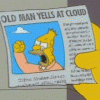-
Posts
488 -
Joined
-
Last visited
Reputation Activity
-
 smg reacted to CarolineNC in What to Wear to a Campus Visit
smg reacted to CarolineNC in What to Wear to a Campus Visit
Haha, I'm planning on wearing what I darn well please. I've never seen a worse-dressed group than professors so I'm not worried about it.
-
 smg reacted to isostheneia in The Long Wait
smg reacted to isostheneia in The Long Wait
A few nights ago (waiting for Chicago to release decisions), I rewatched Apocalypse Now. Somehow, I never realized that it's fundamentally an allegory about graduate admissions in philosophy. So I thought I'd write up some notes on the more interesting points of comparison to learn what this film can tell us about the experience.
Background: On its surface level, Francis Ford Coppola's film is set in the Vietnam War, and shows Captain Ben Willard's (Martin Sheen) journey up the Nung River, on orders to "terminate the command" of Colonel Walter Kurtz (Marlon Brando), a decorated American military leader who has gone rogue. The farther up the river Captain Willard goes, the more we see the devastating effects of the war, not least in terms of the psychological effects on Willard and other soldiers. The war isn't intelligible as a conflict between good and bad; neither the North Vietnamese nor Colonel Kurtz can be simply understood as the enemy.
Basic lines of the allegory: Captain Willard's journey is representative of an applicant's journey through graduate admissions, from his initial orders as the decision to apply, through his journey up the river on a boat of psychologically distressed fellow applicants, to his final assassination of Colonel Kurtz, as the "successful" completion of his mission (one in which the very idea of success is questioned). The military leaders who give Captain Willard his assignment exhibit striking similarities with the status quo of established philosophy professors: they ask him to take the mission, noting that he's highly capable and they need someone like him, but provide him dreadfully little resources, making him fend for himself. And they're fully aware that he likely won't make it through the mission alive, much less psychologically sound.
The question of what element of the application process Colonel Kurtz represents is both one of the most interesting and difficult questions in analyzing the movie. In one sense, he represents an admissions committee: by defeating him, Captain Willard would succeed in his mission, just as surviving the gauntlet of an adcom's scrutiny would result in a successful offer of admission. But it's not quite that simple. Colonel Kurtz isn't just a player in the war, but someone who also occupies a space outside the war. After witnessing the perils of the war (the application process) first hand, he tries to remove himself from the process by taking his unit far up the river into Cambodia. He discovers double agents (i.e. defenders of the status quo of the philosophy profession) in his ranks, and executes them. The American brass concludes that his "methods are unsound," and thus that he must be eliminated. Colonel Kurtz is thus something like a professor who, after being groomed for a tenured job at an R1 university, recognizes the failings of the system and adopts radically different methods for advancing the professor. Kurtz leads a contradictory existence, not wanting to contribute to the injustices of the status quo but being unable to change the process without himself occupying a type of hegemonic position.
Psychological perils of the process: "Saigon. Shit. I'm still only in Saigon." The film opens with Captain Willard lying in a hotel room, waiting for orders. He spends an alcohol-fueled night thinking about his previous tours (this is clearly not his first round of applications), noting that when he's here (applying) he only thinks about home ("real life"), but while he's home, he only thinks about the war. Life is never happy for an applicant, especially during the initial waiting game. Soon into his mission, he encounters Lieutenant Colonel Kilgore, for whom the war is merely a game, and who thinks nothing of the innocent people he gleefully kills. (His line "I love the smell of napalm in the morning" is perhaps as clear a metaphor as we receive in the movie, though I'm still struggling to make sense of what his now-infamous expression "Charlie don't surf!" means for the application process.) Captain Willard is horrified by Kilgore's approach to the war, but begins to see that it's all too common among the American soldiers. He notes, "If that's how Kilgore fought the war, I began to wonder what they really had against Kurtz. It wasn't just insanity and murder, there was enough of that to go around for everyone."
The American bases which Captain Willard and company visit as they travel farther up the river show the devastating effects of the application process, with each being more and more depraved, and losing any sense of order. At the last American base, a messenger tells Willard, "You're in the asshole of the world, Captain!" The messenger is glad to finally give Willard his new information, since the messenger is now free to leave, if only he can find a way out.
In a scene that was cut from the theatrical release, Captain Willard and his crew encounter a French plantation in the jungle, a solitary hold-out from the days of the French occupation of Indo-China. Willard asks them why they don't leave, and they claim that they would never leave, that this is now their home. A young woman observes Willard, noting his weariness of the war (despite Willard's stoic resolve throughout the film). She tells him that he's a doubled man, a walking contradiction. "There's one of you that fights, and one of you that loves." As applicants, we're engaged in a contradictory enterprise, fighting fellow students for a spot in the discipline, but loving each other and the field of philosophy nonetheless. The plantation is clearly a metaphor for the isolation of continental departments in the US, the lone holdouts. One wonders whether it further demonstrates the status quo of analytic philosophy that this scene was cut from the movie. To get a sense of Coppola's pluralist vision of the field, we must watch the Redux version in which it's included.
When he finally arrives at Colonel Kurtz's fort, Willard doesn't know what to make of him. The man appears at once evil, unhesitatingly executing those with whom he disagrees, and wise beyond measure, clearly distraught by the the war and even the operation he runs. Willard sympathizes with Kurtz's distress, but ultimately must kill him because of the atrocities the Colonel commits. As the two converse about the war, Willard tells Kurtz, "They told me you had gone totally insane, and that your methods were unsound." Kurtz replies, "Are my methods unsound?" With clarity, Willard informs him, "I don't see any methods at all, sir." The eventual assassination scene cuts back and forth between Willard slaying Kurtz with a machete, and the native Cambodians' ritual slaughter of a cow. This symbolizes how Willard does not kill Kurtz out of hate, but out of respect. Similarly, only by destroying the hegemony in the application process, even those who recognize its deep inadequacies.
The film ends with Kurtz whispering lines from Conrad's Heart of Darkness (and from the epigraph of Eliot's "The Wasteland"), repeatedly saying "The horror... the horror..." The picture we ultimately receive is one of a necessary fight, but in a terrible war.
Takeaway: The only emotionally uplifting scenes in the film, which are few and far between, are those of camaraderie between Captain Willard and his fellow soldiers on the boat. The only solace to be received from the process is by bonding with those on a similar mission. But Coppola's lasting vision is not one in which a correct approach to the application process can resolve its internal problems. One can only mitigate damages, never eliminate them. Coming to a state of self-consciousness about the terrible contradictions of the process is admirable, but not enough. After the end of the film, we are left in a state of shock, appreciated that the mission has been completed, but mourning the deaths of those who did not survive and lamenting the state of the process more generally. The film does not imply that the problems with the application process are contingent upon problems with current leadership (though these problems are certainly exacerbated by such leadership); rather, the application process is an inherently horrible, but perhaps necessary, state.
I'll end with one of Captain Willard's voice-over observations on the war: "Some day this war's gonna end. That'd be just fine with the boys on the boat. They weren't looking for anything more than a way home. Trouble is, I'd been back there, and I knew that it just didn't exist anymore."
-
 smg got a reaction from DanJackson in Fall 2015 Applicants
smg got a reaction from DanJackson in Fall 2015 Applicants
Nope. I heard their funding is absolutely garbage though.
-
 smg reacted to FaultyPowers in Fall 2015 Applicants
smg reacted to FaultyPowers in Fall 2015 Applicants
AHHHHHHH I GOT IN TO AMHERST AHHHHHHHHHHHHHHHHHHHHHHH!!!!!!!!!!!!!!!
-
 smg reacted to FaultyPowers in Fall 2015 Applicants
smg reacted to FaultyPowers in Fall 2015 Applicants
See...here's the thing about GRE scores.
This is my 3rd year applying. THIRD!!! And you wanna know what my GRE scores are? 167 Verbal, 162 Quantitative. So....kinda high. One of the POIs who rejected me last year said I had literally the highest GRE scores of all applicants to the program. Did it make a difference? No. No it did not. I have a feeling that unless your GRE scores are absolutely abysmal (as in, you typed in your social security number, mike-dropped, and then noped up outta there) you probably don't need to worry about the GRE.
Do any of the repeat offenders remember that poster from last year, who was a faculty member, who was ranting about how annoying it was when prospective students contacted them? It's buried in the archives somewhere, but they basically said that instead of telling applicants "you weren't good enough" or some other variation thereof, they would indicate that they were rejected because their applications were incomplete. I have a feeling that "your GRE score was too low" is just a different version of that. I don't want to deal with the responsibility of explaining why I rejected you, so I'm just going to say your GRE is too low, because you're gonna think that's some kind of auto-fail and it's easier for me that way.
-
 smg got a reaction from museum_geek in Fall 2015 Applicants
smg got a reaction from museum_geek in Fall 2015 Applicants
I wouldn't assume equal performance or relevance for cultural folks. Numbers are hard.
-
 smg got a reaction from fiveby5 in Fall 2015 Applicants
smg got a reaction from fiveby5 in Fall 2015 Applicants
I wouldn't assume equal performance or relevance for cultural folks. Numbers are hard.
-
 smg got a reaction from zeep in Fall 2015 Applicants
smg got a reaction from zeep in Fall 2015 Applicants
I wouldn't assume equal performance or relevance for cultural folks. Numbers are hard.
-
 smg got a reaction from homo_ignotus in Fall 2015 Applicants
smg got a reaction from homo_ignotus in Fall 2015 Applicants
I've read that some schools have an unspoken GRE cutoff of 300-ish for your combined Verbal and Quant scores.
-
 smg reacted to Dr. Old Bill in 2015 Rejections
smg reacted to Dr. Old Bill in 2015 Rejections
It's also worth repeating ad nauseum that a rejection is always impersonal. It's going to feel personal, but more often than not your application is quantified -- all the elements either work with what a department is looking for, or they don't. A large number of rejections probably reveals a deeper flaw in your application, but even then that flaw is not about you so much as it is about how you framed your strengths vis-a-vis (again) what adcoms are looking for. Sometimes there are irreparable issues, to be sure, but usually it's a combination of bad luck, bad timing, and a slightly misguided approach to application materials. In other words, nothing innate.
I'm trying to treat all of these rejections as expensive lessons.
-
 smg reacted to dr. t in "Stripping a Professor of Tenure Over a Blog Post"
smg reacted to dr. t in "Stripping a Professor of Tenure Over a Blog Post"
I would just caution that we need to make a subtle but important distinction between non-academic opinions and this case here.
There are a lot of things that don't fall under the category "academic" that should be protected under "academic freedom". For example, if I mention to the dean at a cocktail soiree that I like merlot or that the Jews faked the Holocaust, that to me is (highly reprehensible) protected speech. Similarly, if a professor was to use non-university resources (e.g. a personal blog) to publicize these reprehensible opinions, that is still protected speech.
It is when this speech is targeted at a specific person or persons that it loses its protection. If I were to tell the same dean that I will not let my colleague Fred get tenure because he's a Jew who hates merlot, that would be a valid grounds for termination of my tenure. McAdams' speech is of this latter sort, and thus his termination is justified.
-
 smg reacted to allplaideverything in New study out on academic prestige and hiring
smg reacted to allplaideverything in New study out on academic prestige and hiring
I can't help but turn up with critical theory when thinking about the system of prestige, and how, like capital itself, it reifies its own values constantly. I think prestige is total horseshit, but its dominance over the social and economic landscape means I can either allow myself to be interpellated into its own value system and choose to pursue prestige, or I can be swept into the margins and crushed. That sucks!
-
 smg reacted to museum_geek in Another week of...nothing.
smg reacted to museum_geek in Another week of...nothing.
You know the wait has gotten bad when you start looking forward to the end of the weekend. Every Monday brings new hope!
-
 smg reacted to 1Q84 in Fall 2015 Acceptances (!)
smg reacted to 1Q84 in Fall 2015 Acceptances (!)
Omg. Totally in shock. Got my first acceptance from UCR with Dean's Distinguished Fellowship. I'm so relieved I'm shaking. I thought all the acceptances had gone out over the weekend. I hope others get their email today or soon too!
-
 smg reacted to 1Q84 in Fall 2015 Applicants
smg reacted to 1Q84 in Fall 2015 Applicants
Pouring one out for my fellow Columbia rejects:
Edit: Okay... this is my 700th post. Maybe it's time to do some work.
-
 smg reacted to 1Q84 in Fall 2015 Applicants
smg reacted to 1Q84 in Fall 2015 Applicants
Are you serious? That's like calling Trump Intl. a nonprofit organization. This is actually the most outrageous thing I've heard all week.
-
 smg reacted to RevolutionBlues in Dealing with Rejection
smg reacted to RevolutionBlues in Dealing with Rejection
This might be an appropriate place to share my own experiences with this issue. Several years ago, as a starry-eyed undergrad at a small state school, I applied to three programs and was rejected from all of them. Fortunately, I was able to get some good feedback and was able to polish up my applications for submission to seven programs ranging from top tier down to fourth tier. Again, I received rejections across the board, bringing my two-year total to ten. This was the most difficult year because the first time around I didn't really know what I was doing, wasn't fully committed to the process, and hadn't spent as much time as I should have on the applications, but this second year I had worked hard to rethink my interests, hone my application to a fine point, and had even met with a professor, all for naught. In retrospect, this series of rejections was very painful, but I decided to make one last-ditch effort at applying to graduate schools. So, I stopped working, travelled to meet with professors, took courses, read and researched, asked everyone I knew to read over my statement of purpose, and then almost destroyed my long-term relationship to go develop my language skills. The payoff for this herculean effort was, out of nine applications, five outright rejections, three unfunded offers, and a single funded MA offer at a state school below the top fifty. Once again, the litany of rejections was a damaging blow, but that one glorious funded acceptance, even if just for a MA, fueled my hopes. By this point, I had received fifteen rejections in three years and three unfunded offers (which were basically rejections), versus one solid offer. Two years later, as my MA was drawing to a close, while taking a full course load, doing language training, teaching, retaking the GRE, contacting POIs, and writing a thesis, I scrambled to pull together another series of applications, again for nine schools. In breaking with my previous experiences, however, in addition to four rejections, I received five PhD offers, four of them from top-ten schools. However, to get there I had to endure nineteen rejection letters.
In short: 1) if getting a PhD in history is really, REALLY what you want to do, then don't let the rejections discourage you.
2) A rejected application is not a judgment on or rejection of you; it is merely a statement that at that particular point the department's short-term needs and yours are misaligned.
3) The process can obviously be painful and maddening, so keep track of those who care about you and don't be afraid to lean on them.
4) When dealing with bad news, I recommend a good drunk, preferably cursing out the offending department to your friends over shots, and then waking up early in the morning to start studying again.
5) If you find yourself striking out this year and want to try again, be sure to contact the department's that you applied to asking for information on the decision, i.e. shortcomings and areas for improvement. Not all will answer, and you don't want to seem incredulous, but an earnest and humble request will often yield solid responses on what you can do to improve your application.
-
 smg reacted to __________________________ in Forget What You're Reading....What Are You LISTENING To???
smg reacted to __________________________ in Forget What You're Reading....What Are You LISTENING To???
2Pac has gotten me through countless Old English and Latin poetry translation sessions. I have no idea why. Maybe it's just cuz 'Pac and the Anglo-Saxons had an affinity for religious metaphors and alliteration...
-
 smg reacted to trogdorburninator in Fall 2015 Applicants
smg reacted to trogdorburninator in Fall 2015 Applicants
Got my first IN in today.... the joint program in Social Work & Anthropology at U. Michigan!
yeeeehaw. phone call from the SW dgs. I kept trying to sit down to talk with her and then leaping up, because I got too excited!
here's hoping for more good new, for all y'all!
-
 smg reacted to Maccabeus in Ph.D. applications 2014-2015 chit chat
smg reacted to Maccabeus in Ph.D. applications 2014-2015 chit chat
I think that's commonplace. Profs get a lot of emails and so if they don't have to respond to it then they won't.
-
 smg reacted to fiveby5 in INTERVIEW PREPARATION
smg reacted to fiveby5 in INTERVIEW PREPARATION
It sounds like this person was a pretty terrible interviewer....... not sure how asking you about extremely specific authors (especially given that they were not your specific POI or anything) gives them insight into how you would fit their PhD program/your personality etc. Especially given that most people's proposals end up differing dramatically from their actual PhD research down the line! I'm sorry you had to go through that!!
-
 smg reacted to hipposhippos in Rejected from Everywhere- and applying again next year
smg reacted to hipposhippos in Rejected from Everywhere- and applying again next year
I, too, had a pretty devastating rejection sweep 2 years ago. In the end, it was all for the best. I wasn't ready to begin a PhD program. Take the time to delve deeper into your interests and be sure to familiarize yourself with the questions that are actively being asked within that topic. Knowing the literature and how you plan to contribute makes a huge difference, especially if you are already well-qualified in the GRE and GPA departments. Apply to NSF--It not only shows that you're serious, but it's a great exercise in putting together a real research proposal. Better yet, it's due in November, so you'll have a great proposal written far before your first PhD app.
-
 smg reacted to NOWAYNOHOW in Fall 2015 Applicants
smg reacted to NOWAYNOHOW in Fall 2015 Applicants
147 here. All aboard the quantitative struggle bus!
-
 smg got a reaction from it's an IR world in I Think I've Made a Huge Mistake
smg got a reaction from it's an IR world in I Think I've Made a Huge Mistake
It could be worse...its not like your doing 25 to life at Angola.
-
 smg reacted to DanJackson in Fall 2015 Applicants
smg reacted to DanJackson in Fall 2015 Applicants
Sorry to hear about the Toronto mix-up - that's seriously lame. I had a somewhat similar experience with UT and decided against them anyway because of all the schools I was looking at (including 3 Canadian schools), they were offering the least money. For some reason that I can't understand their stipend is $3-4k lower than other schools. Moving anywhere is a big expense. Moving across a border is even bigger.
But on the question of Canadian PhDs - they are just as good and sometimes better. I know it's hard to believe based on what they tell you, but there are a few reasons. First, they almost all require you have an MA before you start your PhD. This means the students are all starting at a more advanced stage - all the coursework, all the cohort relations, all the engagements are just more advanced because of this. Second, they grade much harder in Canada than they do in the US. No one gets above 90%, well very few. Most people get Bs. Grade inflation is so bad in the US that they have to use GREs to figure out who to admit because almost everyone applying for grad school has a 3.9 or higher. Most Canadian anthropology PhD programs don't ask for GREs.
Where Canadian programs fall short is what you might call professionalization. Canadian students in grad programs are often treated, but not always, like students. US PhD programs often treat students like colleagues. They have to because they make them teach over 50% of the courses. But the double-edged sword is that you end up in the US spending all your energy on teaching, whereas in Canada you're free to spend it on research and publishing (the things that actually get you jobs later). However, the flip side is that Canadian grad students are always told to publish in student journals and go to student conferences which is silly. US students are encouraged to publish in the same journals as everyone else (although there are a few student journals) and present at conferences alongside the faculty. So, on the one hand the US students get treated like professionals from the beginning, without being given time and space to develop that work. On the other hand Canadian grad students are given time and space to develop their work, but often treated as students. Of course there are exceptions and this will vary by department and advisor - but it's an overall trend I've noticed among my 'cohort' across US and Canadian PhD programs.
There is a world out there, beyond the borders of the US - there are teaching jobs in Europe, UK, and Canada - and elsewhere - on every continent. And there are barely any at all in the US. So this idea about US PhDs being the only one you can use to get a job is about 20 years old and no longer valid - mostly because there aren't any jobs in the US, because the university system is being dismantled. What do you expect when you spend most of your resources on the military...
I hope Toronto does admit you, and gives you an offer. If they give you 15k for 4 years, I would take it, as long as you feel OK about taking out a small amount of US Federal Loans to supplement it (which you can do while you're there, so file your FAFSA!).
But if they don't - I would recommend looking again all over Canada for your next round of applications - there are many incredible schools and programs - and there's lots of full-funding spots in Canada. Many US students are going to Canada for MAs (full funded) and PhDs now - no one wants 8 years of study and huge debt with no job prospect. If you're going to get a PhD in a world without a guarantee of a job, you might as well get it without much debt.







